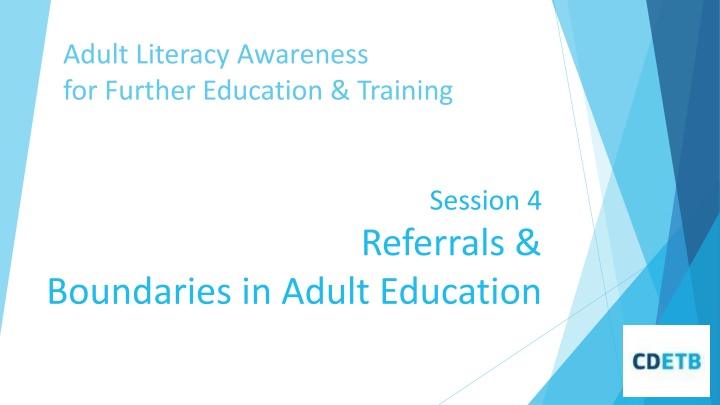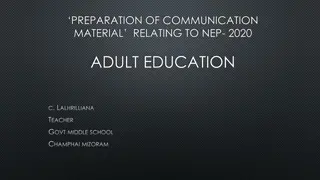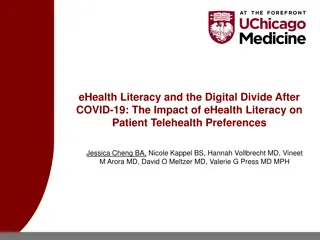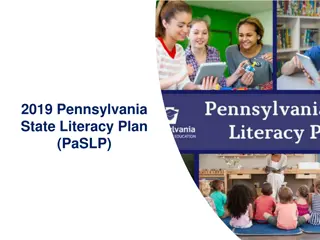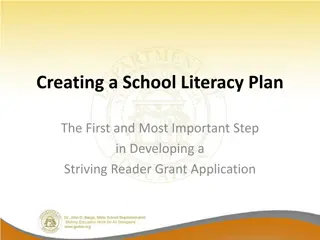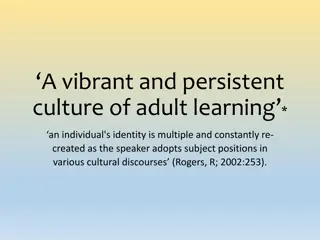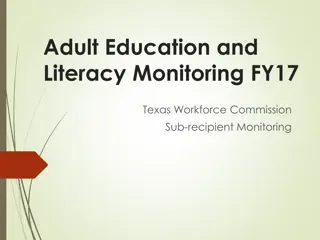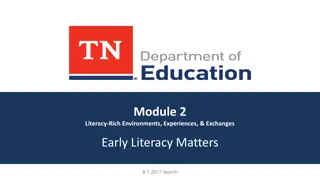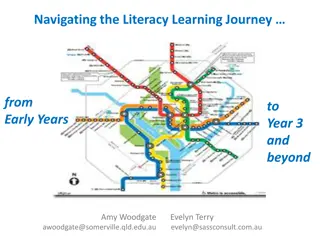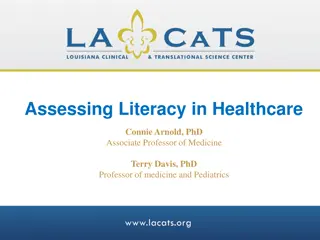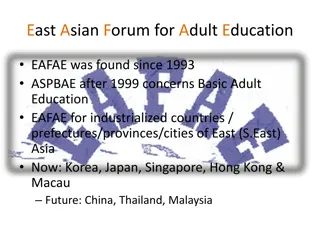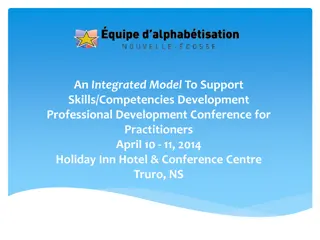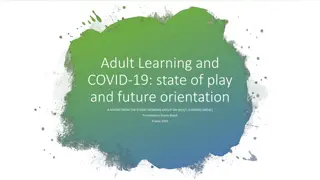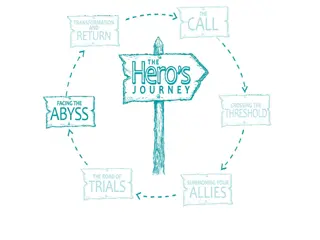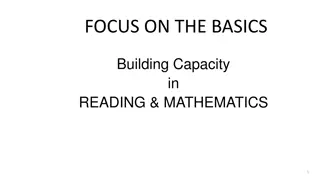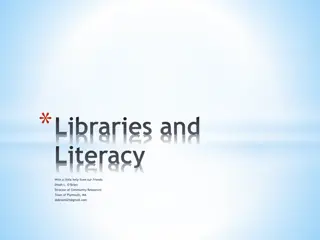Enhancing Adult Literacy Awareness and Education Programs
Explore the importance of referrals and boundaries in adult education sessions, focusing on understanding available supports, referral routes, practitioner and student roles, and skills for engaging with individuals with literacy needs. Discover how City of Dublin ETB Adult Education Service offers Adult Literacy, ESOL, and Community Education, maintaining a safe, supportive environment with voluntary attendance. Consider adjustments to make organizations more literacy-friendly and what new learners can expect in adult education programs.
Download Presentation

Please find below an Image/Link to download the presentation.
The content on the website is provided AS IS for your information and personal use only. It may not be sold, licensed, or shared on other websites without obtaining consent from the author.If you encounter any issues during the download, it is possible that the publisher has removed the file from their server.
You are allowed to download the files provided on this website for personal or commercial use, subject to the condition that they are used lawfully. All files are the property of their respective owners.
The content on the website is provided AS IS for your information and personal use only. It may not be sold, licensed, or shared on other websites without obtaining consent from the author.
E N D
Presentation Transcript
Adult Literacy Awareness for Further Education & Training Session 4 Referrals & Boundaries in Adult Education
Extension Activity Feedback Considering the following areas: Environment Digital access Reading material Staff awareness Verbal communication Reflect on three possible adjustments you would consider to make your organisation/work more literacy-friendly?
Aims Session 4: Referrals & Boundaries in Adult Education Understand Available supports, referral routes and the learner journey Recognise The roles and responsibilities of practitioners and students Boundaries skills needed for engaging with people with unmet literacy needs Examine
City of Dublin ETB Adult Education Service Adult Education Service includes: Adult Literacy Service (incl. Family Learning) ESOL English for Speakers of Other Languages Community Education Adult Education Guidance
Adult Literacy Service Takes place in a safe and supportive environment Maintains confidentiality within the team Work in one to one or small groups with students Attendance is voluntary Classes in ETB centres and out-centres within the community, e.g., CE Schemes, Home School Liaison, Resource Centres, Community Partners
Zoom & More Book Club History through Podcasts Literacy Service Classes Phone Postal Service www.Coolock ALS.ie Whats App @CoolockALS
What can new learners expect? It's not like school Meets your needs Voluntary attendance Fits around your life Respectful adult environment Your pace & level & time Join anytime Recognises experience Learn alongside other course or commitments Student centred and led Shared learning Learn from home or in class Tutor as facilitator Confidential Supportive classmates Fun
Referrals from the wider FET sector (PLC & TC) To include support from ALOs to the wider FET sector Literacy Awareness Training for the FET sector Admissions teams training Bank of assessment materials (ESOL and Literacy) Possibility of classes to support learners: Classes to support the literacy demands of courses where a learner has some unmet needs in a particular area of their courses, language, maths or writing difficulties These supports are often led by the demands of the course, as opposed to learner led within the AES
Why consider boundaries when approaching a learner who has unmet literacy needs? The learner may be unaware Boundaries as a set of skills The learner may not see it as an issue The learner may be aware and feels shame about their difficulties Consider whose role it is? Class teacher/tutor/guidance counsellor?
Boundaries are self-care Self-care prevents burnout Self care mitigates the effects of a heavy workload Self care prevents compassion fatigue or burnout Different to stress management in that it is preventative rather than reactive
Overview of the CDETB Code of Practice Why have a Code of Practice? This Code of Practice is intended to promote a healthy and safe working and study environment and is not intended to stifle normal, healthy professional relationships among staff and learners of the organisation. This Code of Practice also seeks to remind staff to be prudent in their contacts with learners so as to avoid allegations of improper behaviour. In this context staff should adhere to the protective measures contained within this Code of Practice so as to avoid situations which could lead to allegations of unprofessional or inappropriate behaviour.
Boundary points Professional Distance Foster a positive, friendly and helpful relationship within the boundaries of the role Make the learner aware that they too have a responsibility to respect the boundaries of your role Referral Be mindful of your limitations, and refer the learner to appropriate literacy/guidance/psychological services or otherwise after discussion with line manager Confidentiality Consent of the learner to discuss their issue with a manager should always be obtained where possible
Breakout Room Discuss any/all of the following incidents and how a tutor/teacher might respond.
How do I respond? With handout 4.1, discuss the following and the optional answers in your breakout rooms A learner tells you that you "really get them and no one else is as good a tutor", they express that they think you are wonderful A learner asks you are you married, and do you have any children? One of your learners brings you a reasonably expensive bottle of perfume/aftershave as a gift at the end of your course A student asks you are you on Facebook/Instagram and can they 'add you'
How do I differentiate between being friendly and being a friend? Not overly disclosing information of a personal nature Not accepting gifts Not connecting on social media sites Not being available outside agreed class/tutorial time Avoiding any behaviour that might lead a leaner to misunderstand the relationship misconstrue it as friendship By following the above, you are both protecting yourself and communicating to the learner that this is a professional relationship
Extension Activity Reflecting on your practice in the past, have there been instances where you felt unable to support a learner with unmet literacy needs? Are there any practical tips that you would take from this session that would inform your future practice. Can you give any examples?
